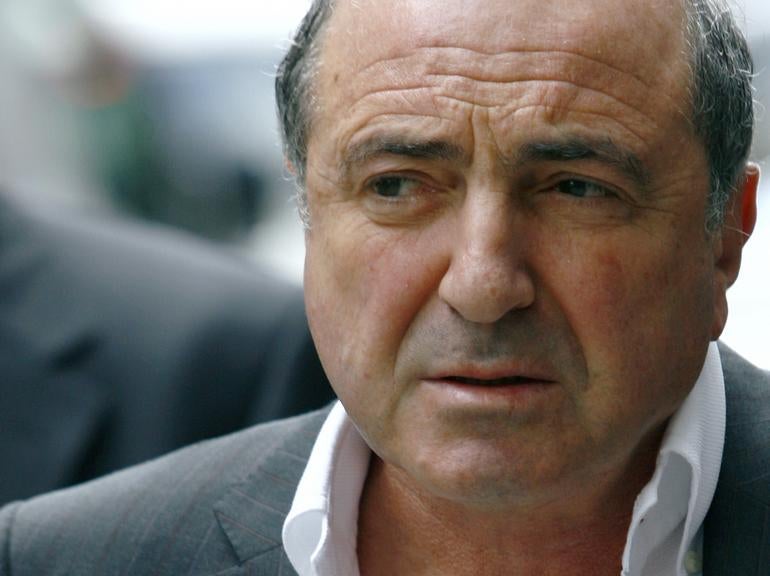
Businessman Boris Berezovsky won £150,000 High Court libel damages today over claims on a Russian TV broadcast about the radiation poisoning murder of Alexander Litvinenko.
The 63-year-old Russian businessman, who was granted political asylum in the UK in September 2003, sued over an April 2007 broadcast on the state-owned TV channel RTR Planeta, which is available by satellite in the UK.
During the hearing in London, Mr Justice Eady heard that the Russian Television and Radio Broadcasting Company (RTR), which has never suggested that what it broadcast was true, had declined to take part in the proceedings.
It left Vladimir Terluk, who Berezovsky alleged was the silhouetted figure called Pyotr who featured in the programme, “to face the music on his own”, unrepresented by lawyers.
The judge, who tried the case without a jury, said: “I can say unequivocally that there is no evidence before me that Mr Berezovsky had any part in the murder of Mr Litvinenko. Nor, for that matter, do I see any basis for reasonable grounds to suspect him of it.”
The court had heard that the cornerstone of the programme as a whole was to accuse Berezovsky of the 2006 London murder of Litvinenko.
The motive was said to be that Litvinenko was a witness to a conspiracy in 2003 to avoid Berezovsky’s extradition and to obtain his political asylum by procuring false evidence from Terluk that there was a plot by Russia’s FSB security service to kill Berezovsky.
It was said on the programme that Berezovsky had been party to threats to Terluk’s life.
The judge rejected Terluk’s claim that the alleged plot to procure from him false evidence was true, saying: “I am driven to conclude that the central allegation that is directly attributable to Mr Terluk in the programme is false.”
He concluded: “I see no evidence at all of any risk to Mr Terluk’s safety and welfare originating with Mr Berezovsky or his entourage.”
He said the allegation was calculated to put Berezovsky’s refugee status at risk.
Berezovsky, who now lives in Surrey, had told the court that Litvinenko, whom he knew as Sasha, had twice saved his life, and that their shared history as exiles and opponents of President Vladimir Putin and the FSB cemented their friendship.
He was concerned about the damage which the “absolutely outrageous” allegation would cause to his reputation, he said.
After the ruling, Berezovsky said: “I have no doubt that, in making this programme, the purpose of RTR and the Russian authorities was to undermine my asylum status in the UK and to put the investigation of Sasha Litvinenko’s murder on the wrong track.
“I am pleased that the court, through its judgment, has unequivocally demolished RTR’s claims.
“I trust the conclusions of the British investigators that the trail leads to Russia, and I hope that one day justice will prevail.”
Both RTR and Terluk, who denied in court that he was Pyotr and had pleaded justification, are jointly liable for the damages.
The judge said there were likely to be formidable obstacles in recovering the money.
“This may indeed be a matter of only peripheral interest to Mr Berezovsky. I doubt that he brought the proceedings to make money. It will be for him to decide whether it is worthwhile to attempt to enforce the award,” Mr Justice Eady said.
Although RTR was responsible for the content of the programme as a whole, the judge found that Terluk was not personally responsible for any allegation that Berezovsky was implicated in Litvinenko’s murder.
The judge said the award would have been higher if he was also compensating for the equally unfounded allegation that Berezovsky was responsible.
Email pged@pressgazette.co.uk to point out mistakes, provide story tips or send in a letter for publication on our "Letters Page" blog

